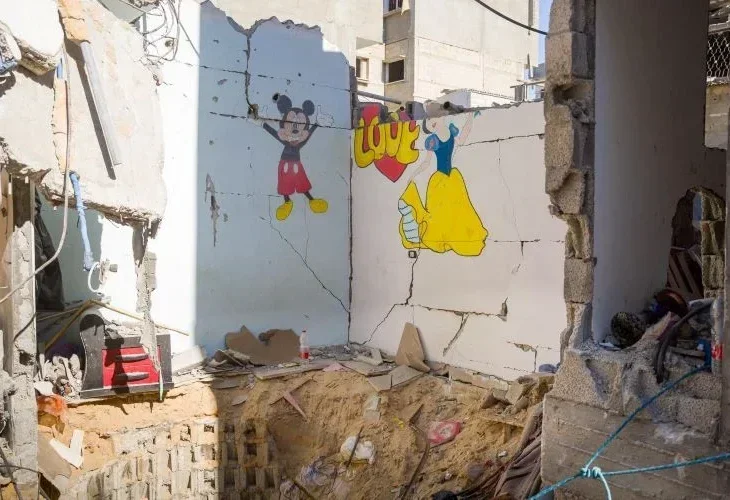Report Published on the Murder of Six Hostages in Rafah: Likelihood of Their Presence Was Low
The investigation into the murder of the six hostages, whose bodies were found in a tunnel in Rafah last August, was presented to their families. According to the investigation, 'IDF's maneuvering in the area, although graded and cautious, had a circumstantial impact on the terrorists' decision to kill the six hostages. However, the circumstances of the events inside the tunnel leading to the murder are unclear, and the likelihood that they will be clarified in the future is low.'
- הידברות
- פורסם כ"ג כסלו התשפ"ה
 The tunnel shaft where the six hostages were found (Photo: IDF Spokesperson)
The tunnel shaft where the six hostages were found (Photo: IDF Spokesperson) #VALUE!
The investigation into the murder of the hostages Carmel Gat, Eden Yerushalmi, Hirsch Goldberg-Polin, Alexander Lubanov, Almog Sarusi, and Master Sergeant Uri Danino was summarized by the Chief of Staff, Lt. Gen. Herzi Halevi, and presented today (Tuesday) to their families.
The investigation was conducted by the Southern Command, the Prisoners and Missing Persons Division, Division 162, and Shayetet 13, who examined the activities of the IDF forces during the battle to defeat Hamas' Tel Sultan Battalion, and the circumstances that led to the murder of the six hostages by Hamas terrorists.
The investigation reveals that on August 15, 2024, Division 162 forces launched an operation to defeat Hamas' Tel Sultan Battalion, after about three months of activity in Rafah. The forces fought deep in the Tel Sultan neighborhood, in fierce battles with Hamas terrorists, during which they discovered a major underground system in the area.
For the continuation of activities in the area, including locating and investigating the underground system, a dedicated headquarters was established led by Shayetet 13 and the division, in collaboration with other security bodies. The headquarters combined special forces, various intelligence bodies, precise underground operations capabilities, as well as the use of special means and technology, among other things in case hostages were present in the area.
Before the operation, an operational plan was made in full cooperation between the Southern Command and the maneuvering division, along with the Prisoners and Missing Persons Command, in which it was assessed that the likelihood of hostages being in the area was medium-low. However, the forces were instructed to operate under the assumption that there may be hostages in the area and to act with the necessary caution, conducting regular assessments on the matter in coordination with the relevant professional factors.
On August 27, the hostage Farhan Al Qadi was rescued from the underground complex. Al-Qadi was alone, and there was no prior intelligence on his presence in the tunnel. After the rescue, the forces conducted a specific assessment on the possibility of additional hostages being in the area, alongside halting the operation for 24 hours. Even after the rescue, the IDF had no intelligence on the presence of additional hostages in the area at that time.
The tunnel shaft where the hostages were found (Photo: IDF Spokesperson)
On the afternoon of August 31, division forces found the six hostages inside the underground tunnel, no longer alive and with signs of gunfire on their bodies.
The investigation revealed that the six hostages were murdered by the terrorists holding them. The IDF noted that 'IDF's maneuvering in the area, although graded and cautious, had a circumstantial impact on the terrorists' decision to murder the six hostages.'
According to the pathological report findings, the estimated date of the hostages' murder is August 29. IDF forces found the shaft where the six hostages were located on August 30, after they were murdered.
According to the IDF statement, 'The Chief of Staff concluded that this is a painful and tragic event, with extremely harsh results of six hostages brutally murdered by Hamas. The Chief of Staff determined that based on the investigation, the hostages were murdered by Hamas terrorists during IDF operations in the area; however, the circumstances of the events inside the tunnel leading to the murder are unclear, and the likelihood of them being clarified in the future is low.'
'The Chief of Staff emphasized the moral obligation to investigate the event for the hostages' families, and for operational learning purposes, and established that the IDF will continue to act in all efforts to fulfill the national mission and the war goal of returning the hostages. The Chief of Staff stressed that it is our duty to bring back the hostages alive, and the fallen to burial. In this case, we did not succeed in bringing them back alive, and the obligation is upon us to learn from this and to critically scrutinize ourselves.'